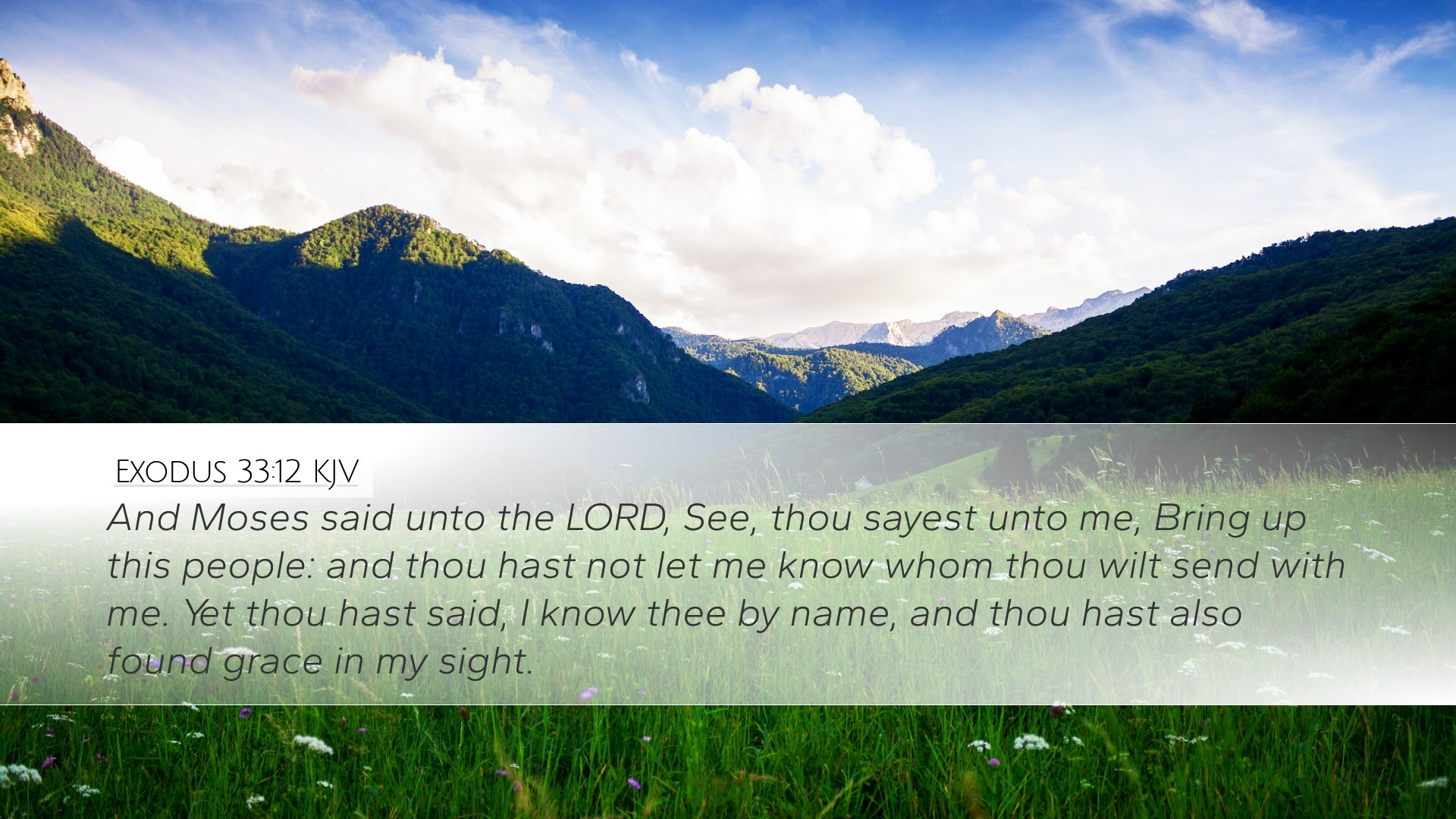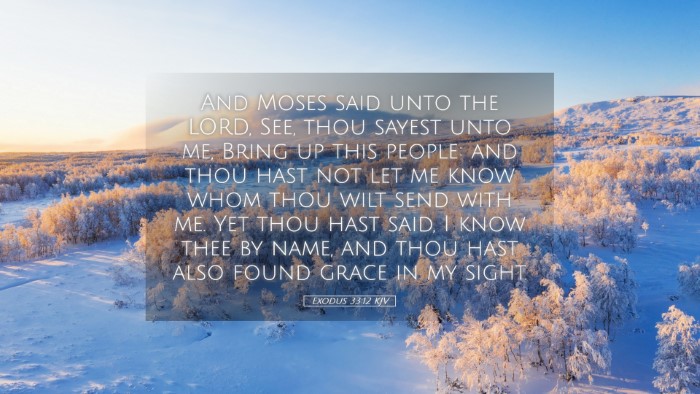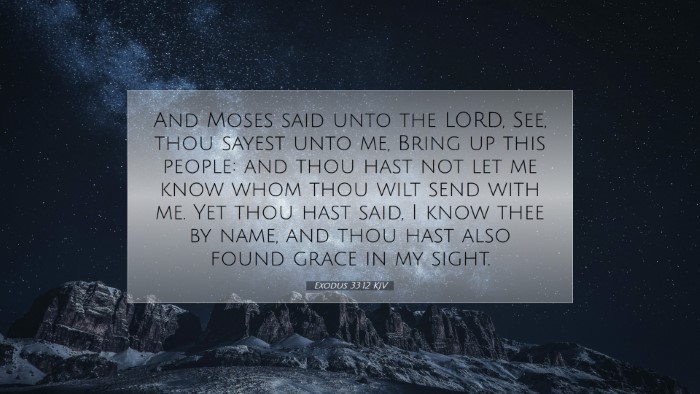Exodus 33:12 Commentary
Verse Context
Exodus 33:12: "Moses said to the LORD, 'You have been telling me, "Lead these people," but you have not let me know whom you will send with me. You have said, "I know you by name and you have found favor with me."'”
Introduction
The passage of Exodus 33:12 highlights a pivotal moment in the relationship between Moses and Yahweh as Moses intercedes for Israel. Understanding this moment requires delving into the context of the Israelites’ journey, the significance of divine presence, and the qualities of leadership.
The Call and Assurance
Moses' appeal to God reveals an earnest concern for guidance and companionship. He acknowledges a divine appointment and the pressing need for God's presence among the people he is called to lead. Matthew Henry observes that Moses, despite his unique relationship with God, still seeks reassurance of God’s guidance as he faces the daunting task of leading a stubborn and disobedient people.
- Moses’ Role as a Leader: Moses displayed humility by recognizing that the success of his mission depended on God's presence. Albert Barnes notes, "Moses was well aware that without God’s guidance, even his great skills and qualifications would be insufficient."
- The Request for Companionship: Moses desires not only God's presence but also clarity regarding who else would accompany him—an indication of shared leadership and reliance on others.
Spiritual Significance
Understanding the spiritual implications of Moses' plea can provide profound insights for contemporary application. Adam Clarke emphasizes the importance of divine communion, noting that knowledge of God and having His favor is the bedrock of effective leadership. The theological framework is established that without God, even the most capable leaders are left vulnerable and ineffective.
- Desire for Divine Presence: As Moses wrestles with the leadership challenge, he acknowledges that it's not just instructions that are necessary, but an ongoing relationship with God.
- Recognition of God’s Knowledge: Moses’ statement that "You have said, 'I know you by name'" highlights personal intimacy and the covenantal nature of God’s relationship with His people.
Theological Implications
For pastors and theologians, this passage leads to reflection on the nature of divine guidance. Henry elucidates that every Christian leader should seek the assurance of God’s direction in their endeavors. Moreover, this passage points to the broader theme of God's willingness to establish personal relationships with those He calls.
- God’s Immanence: The verse underscores that God is not distant; rather, He engages with His people personally and intimately.
- Encouragement for Believers: The assurance of God’s presence can empower modern-day believers to undertake their missions with confidence.
Practical Applications
When examining this verse, we draw practical applications relevant to today’s church environment:
- The Role of Prayer: Just as Moses sought confirmation from God, church leaders should prioritize prayer in their decision-making processes.
- Emphasis on Community: Recognizing the significance of companionship in leadership can encourage teams to work collaboratively, just as Moses desired companionship in his calling.
- Trust in Divine Guidance: Leaders should encourage their congregations to trust in God's knowledge and guidance, especially during uncertain times.
Conclusion
Exodus 33:12 serves as a poignant reminder of the necessity of divine presence in leadership. Moses exemplifies the characteristics of a great leader who seeks ongoing dialogue with God while acknowledging the collective involvement of others. For theologians, students, and pastors, this verse invites deep reflection on the nature of God’s guidance in their personal journeys and communal ministries. It is a call to remember that true favor lies not only in being known by God but also in walking closely with Him as we face the challenges of leadership.


